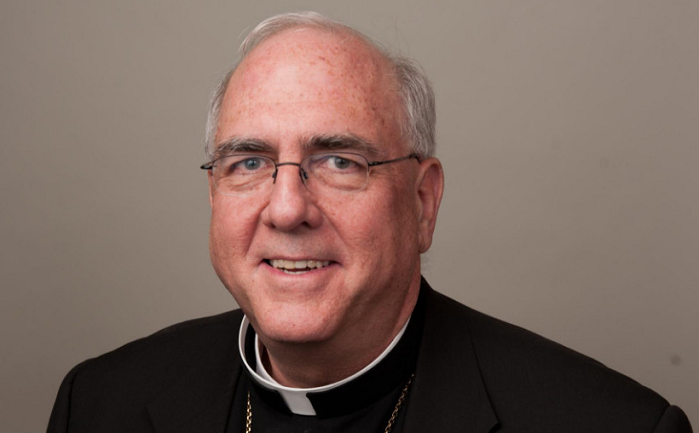Kansas Archbishop Joseph Naumann urged Catholics to “bring an end to the culture of death” this week as many debate the morality of new COVID-19 vaccines that have connections to aborted babies.
Naumann, who leads the U.S. Conference of Catholic Bishops Pro-life Committee, told EWTN Pro-Life Weekly that Christians should pray for wisdom about whether to be vaccinated as coronavirus cases spike and the death toll continues to grow, the Catholic News Agency reports.
“I think, like in everything, we need to pray,” Naumann said. “We need to ask the Holy Spirit to give us wisdom and to make the right choice, the moral choice for us. And we have to weigh these goods: the good of protecting our health, the health of our loved ones, the health of the community.”
He emphasized that unborn babies’ lives and the evil of abortion also must be considered.
“And also at the same time, stand strongly to protect innocent human life and to bring an end to the culture of death and to abortion,” the archbishop added.
Earlier this year, the U.S. Conference of Catholic Bishops urged the government and pharmaceutical companies to make sure that ethical vaccines are available for COVID-19, Naumann said. But thus far, the only three currently available vaccines have connections to aborted babies.
SUPPORT LIFENEWS! If you like this pro-life article, please help LifeNews.com with a donation!
“With the Moderna and the Pfizer vaccine, there were no aborted fetal cell lines used in the production or the development. However, they did use aborted fetal cell lines in the testing to see if they were if they were effective,” Naumann said. “The AstraZeneca one, on the other hand, does use these aborted fetal cell lines that go back to 1960 when the abortions actually occurred.”
He told EWTN that he does not think being vaccinated would be illicit for Catholics, but no one should feel obligated to get vaccinated. He did add that the Moderna and Pfizer vaccines are better options because their connections to abortion are more remote.
Naumann urged people to tell the government and pharmaceutical companies to support ethical vaccines. He said anyone who chooses to be vaccinated with one of the three currently available products “are even more obligated” to do so.
Though the vaccines do raise ethical concerns, he said he does not believe they are “encouraging abortion” because “it’s not like new abortions need to occur for these cell lines.”
On Monday, the Vatican also released a statement emphasizing that while abortion is evil, it is not wrong to be vaccinated because the act “does not constitute formal cooperation with the abortion from which the cells used in production of the vaccines derive.”
A number of leading pro-life and religious organizations, including the U.S. Conference of Catholic Bishops, have warned people about the unethical production of the AstraZeneca vaccine. However, they suggested that two others from Pfizer and Moderna are morally permissible because their connections to abortion are very limited.
The Charlotte Lozier Institute has a list of the vaccines with information about whether cells from aborted babies were used in testing and/or production. Find it here. None of the vaccines contain actual cells from aborted babies.
The list shows that the AstraZeneca vaccine used an abortion-derived cell line in design and development, production and confirmatory lab tests. The Pfizer and Moderna vaccines only used an abortion-derived cell line in some of the confirmatory lab tests.
According to the Charlotte Lozier Institute, some vaccines still in development are being made without any abortion-derived cell lines. It is not clear when they may be available to the public. These include CureVac, which is being developed in Germany, and a Sorrento vaccine being developed in the U.S.
There is disagreement about the currently available vaccines even among Catholic and pro-life leaders. Earlier this month, a group of Catholic bishops from the U.S. and Europe said even vaccines with remote connections to abortion are unethical. Pro-life leader Abby Johnson expressed similar concerns this month, urging pro-lifers to reject vaccines with any connection to abortion and demand that companies produce ethical products.
Vaccines can be — and some are — produced ethically with materials such as pluripotent stem cells and tissue from placentas, umbilical cords and amniotic fluid. In 2018, the Trump administration created a $20 million grant to invest in these ethical research alternatives.
It appears that some vaccine producers are listening to pro-lifers’ concerns. In September, the company Sanofi-Pasteur announced plans to produce a new, ethically-developed polio vaccine. The project will replace an older polio vaccine that was developed with cells from an aborted baby, according to the Catholic News Agency. Sanofi-Pasteur is one of the largest vaccine production companies in the world.








